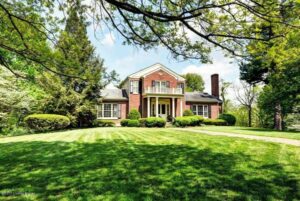Surprisingly, many first-time homebuyers are retirees or older individuals. Many seniors who have lived in their current homes for many years might decide to upgrade to a newer model for reasons like preferring a warmer climate or wanting to be closer to family. So what are the key issues to focus on when buying a home as a senior?

6 Things to Consider When Buying a Home as a Senior
Buying a house is an option for people of all ages, but there are specific considerations for each age group. As a retiree, you have more options than you would think. If you’re thinking about downsizing but not completely, you don’t have to stick to the same house or neighborhood. Think instead about the long-term benefits and comforts of each option. In this respect, here are some things seniors must consider when buying a new home:
1. Real Estate Partner
Once you’ve made the decision to buy, the next step is to hire a professional real estate agent well-versed in your area’s lending institutions and who knows what qualifications and requirements you’ll need to buy a new home. The more you understand, the more likely you are to find a mortgage program that suits your needs and has conditions that are agreeable to you.
Your agent must prioritize house listings that meet the following criteria:
- Features a high potential for growth in value
- Need few, if any, fixes and little in the way of maintenance
- Suitable for the elderly’s lifestyle preferences
If you’re interested in buying a property in the western part of the United States, professional real estate teams like Utah Real Estate can help you.
2. Healthcare Access
Regarding medical privileges, you must note that older people will need immediate access to hospitals as taking care of their health becomes a priority. There must be an easy way for them to get to the hospital quickly and conveniently in case they experience any pain or discomfort and need to see a doctor.
3. Home Design
Designing for seniors with non-standard requirements takes extra thought. When planning for the elderly, lighting, flooring, and furniture are important. Retirees with poor eyesight need brighter, cooler lights. For mobility, a home designer must include ambient lighting. When placing furniture, leave ample room for movement. Tables and chairs with adjustable backs and headrests are preferable. You can achieve comfortable, safe walking conditions by installing non-slip tiles or higher-density carpets on the floor.
Installing grooved grab bars in bathrooms, bedrooms, and living areas can help avoid falls. The door color should contrast with the flooring. Less is more for doorways. This is vital if you have a wheelchair-using family. Avoid decor choices like rugs, bulky furniture, and huge plants because they have the potential to block assistive devices like wheelchairs and elderly walkers.
4. Environment
Seniors need a peaceful environment. They need a special that’s good for their well-being. They may exercise, relax, and meditate. Younger people like livelier places, whereas older people prefer more peaceful ones. They should choose between seeing their grandchildren play or moving away with their peers to keep harmony.
Consider your neighbors too. It’s a good idea to get a feel of the neighborhood. Do people often have loud get-togethers in their homes? Is the music too loud for your senior? Seniors are especially vulnerable to burglaries or other crimes. That’s why a thorough inspection of the surroundings is important.
5. Security
It’s a good idea to think about things like real estate and safety at any age, but it’s especially important to do so for the elderly. Older individuals cannot tolerate any sort of physical harm. Their bodies take far longer to recover from injuries than younger people. This is why safety and security are two priorities when buying a home as a senior.
Because of this, seniors often make changes to their lifestyles that will result in lower costs for the desired construction, maintenance, and repair fees associated with their homes. Instead, they will put that money into paying for their medical care.
6. Smart Features
Speaking of smart homes, you might picture something modern and trendsetting. However, the elderly might greatly benefit from the conveniences offered by smart homes. An app or a smart device can schedule medication reminders and make phone calls with ease. When someone encounters an emergency, the system can automatically contact emergency services. Many modern smart home features allow for remote control. Seniors who live alone and have many physical impairments can have peace of mind knowing they can control their appliances and electronics from afar.
Conclusion
Finding and buying a home as a senior can be a challenging and time-consuming process. But you don’t have to face this challenge alone. You can work with experts to find the perfect place to settle down in your twilight years.



